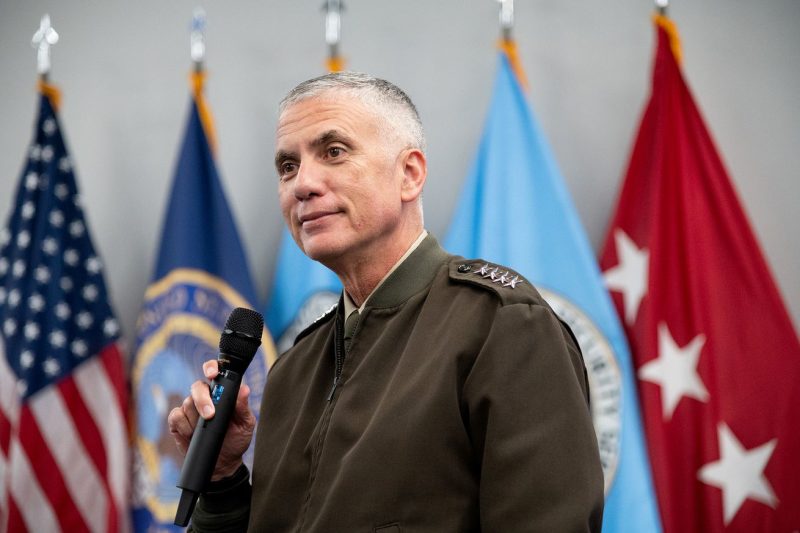Former Head of NSA Joins OpenAI Board
The recent announcement of the former head of the National Security Agency (NSA), General Paul Nakasone, joining the board of OpenAI has sparked significant interest and speculation within both the tech and security communities. OpenAI, renowned for its work in artificial intelligence and machine learning, has positioned itself at the forefront of cutting-edge technology developments. General Nakasone’s appointment signals a new era of collaboration between the intelligence and technology sectors, with potential implications for national security, privacy, and the future of AI.
General Paul Nakasone brings a wealth of experience and expertise to the table, having served in various high-profile roles within the intelligence community. As the former head of the NSA and U.S. Cyber Command, General Nakasone is well-versed in the complexities of cybersecurity, data protection, and the intersection of national defense with emerging technologies. His strategic vision and leadership will undoubtedly provide valuable insights to OpenAI as it navigates the rapidly evolving landscape of AI research and deployment.
The decision to appoint General Nakasone to the board of OpenAI highlights the increasing convergence of security and technology interests in the contemporary context. With AI playing an ever-expanding role in diverse domains, including defense, healthcare, finance, and more, the need for robust governance, ethical considerations, and risk management frameworks has become paramount. General Nakasone’s background in overseeing national security initiatives will undoubtedly inform OpenAI’s approach to responsible AI development and deployment.
The implications of General Nakasone’s appointment extend beyond the immediate context of OpenAI. The collaboration between a former intelligence chief and a leading AI research organization underscores the growing importance of interdisciplinary partnerships in addressing complex challenges at the nexus of technology and security. By leveraging General Nakasone’s insights, OpenAI may enhance its capabilities to anticipate and mitigate potential risks associated with AI proliferation and misuse.
The synergies between the intelligence community and the tech industry are likely to deepen as AI continues to reshape societal dynamics and power structures. General Nakasone’s presence on the board of OpenAI may catalyze new dialogues and collaborations between traditionally siloed sectors, fostering innovation and best practices for harnessing AI’s transformative potential. Moreover, his appointment may serve as a model for future engagements between public and private entities seeking to leverage AI for the common good.
In conclusion, General Paul Nakasone’s joining of the OpenAI board represents a significant milestone in the ongoing evolution of the intersection between national security, technology, and AI. His unique perspective and domain expertise will undoubtedly contribute to OpenAI’s strategic decision-making and governance frameworks, setting a precedent for cross-sector collaboration in navigating the complex challenges posed by AI advancement. As the boundaries between the intelligence and tech realms blur, General Nakasone’s appointment serves as a testament to the transformative power of collective intelligence and collaborative innovation in shaping a more secure and inclusive AI-enabled future.




























